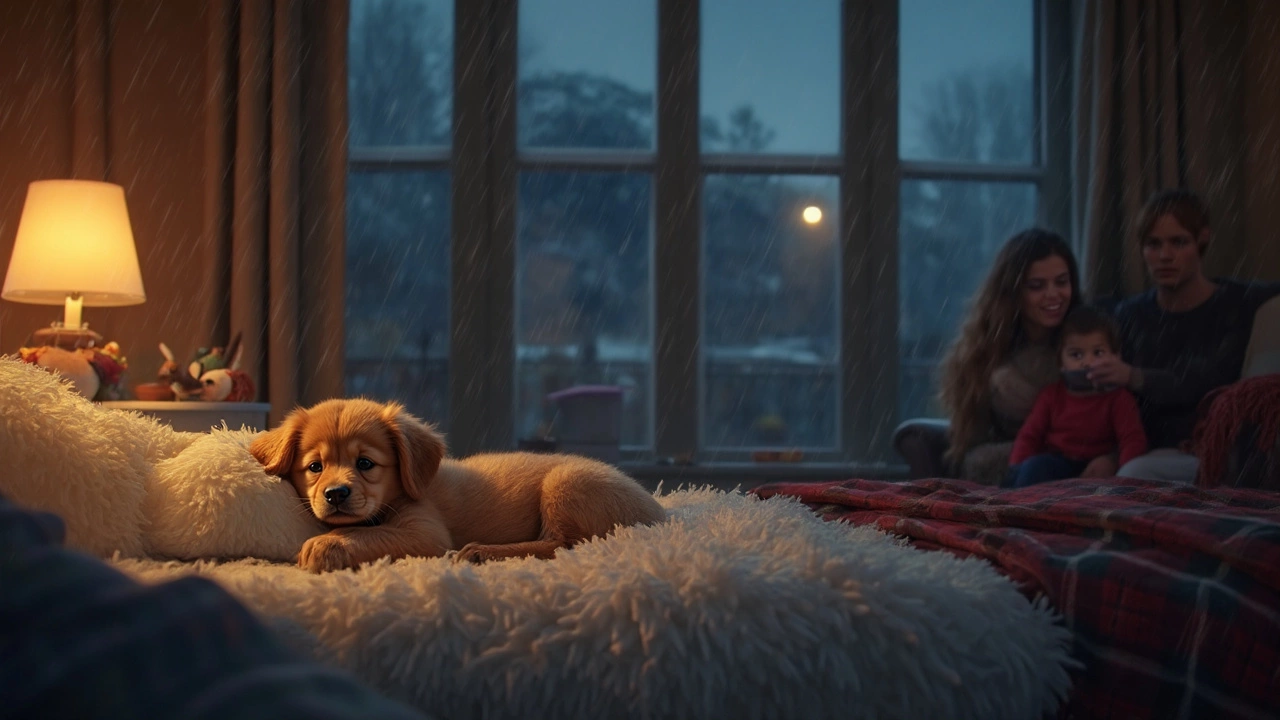Dog Sleep Schedule: Easy Tips for a Rested Pup
Ever wonder why your dog seems up all night while you’re trying to catch some Z’s? The answer is simple – dogs need a clear sleep schedule just like people do. When you give them a routine, they settle faster, sleep deeper, and you both get better rest.
Why a Consistent Sleep Schedule Matters
A regular bedtime tells your dog when it’s time to relax and when it’s time to play. It reduces anxiety, stops nighttime bathroom trips, and helps puppies learn to hold their bladder longer. Dogs that know when to wind down also show less hyper‑active behavior during the day.
Research from veterinary schools shows that a predictable routine can lower cortisol, the stress hormone. In plain terms, a calm dog is a healthier dog. The same rule works for older dogs – a steady schedule eases joint pain and supports good digestion.
Practical Steps to Set Up a Bedtime Routine
Start by picking a consistent bedtime. Whether it’s 9 pm or 10 pm, stick to it every night. Turn off bright lights 30 minutes before sleep and dim the room. A calm voice, gentle petting, or a short walk can signal the transition.
Food matters too. Feed your dog the main meal at least three hours before bedtime. That gives the stomach time to settle and reduces late‑night bathroom runs. For puppies, a quick potty break right before lights out helps them last through the night.
Choose a comfortable sleeping spot. A dog bed in a quiet corner works best. If you let your dog sleep in your room, make sure the bed is away from the foot of your own bed to avoid accidental kicks.
Stick to the routine even on weekends. Dogs are creatures of habit, and a sudden shift can cause confusion and restlessness. If you travel, try to keep the same bedtime and pre‑sleep activities in the new location.
Watch for signs that the schedule isn’t working. Excessive whining, frequent waking, or endless pacing mean you may need to adjust the bedtime or the pre‑sleep wind‑down. Small changes, like a longer walk or a later dinner, can make a big difference.
Finally, be patient. It can take a week or two for a dog to adapt, especially a puppy. Celebrate small wins – a full night of sleep, fewer bathroom trips, or a calm settle‑in routine. Consistency is the key, and soon both you and your dog will enjoy a peaceful night.

Should I Wake My Puppy at Night to Go Potty? Simple Answers for Sleep-Deprived Owners
Are you supposed to wake your puppy at night so they won’t have accidents? Eating, sleeping, and bathroom breaks are a puppy’s full-time job, and nighttime can get tricky. This article breaks down whether you need to set those midnight alarms plus when you can finally enjoy a full night’s sleep again. Expect real tips to prevent accidents, protect your sleep, and raise a well-trained pup.
View more